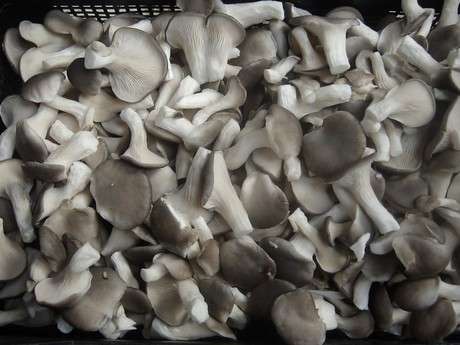William hopes to be in full production in one or two weeks. "But since the soil is very hot, we need a lot of rain and some nice thunderstorms, so that the varieties can come in."
Autumn product
"We make 70% of our revenue in the last four months of the year. This is the time when mushrooms grow and our customers ask for them. During the fall, you must be able to offer them. Our French mushrooms are marketed first, but if we do not have French ceps, we look for them in another country, such as Hungary, Bulgaria, Spain, Portugal, or Romania."
"We mainly work on mushrooms that naturally grow in the woods, mainly in France, but also throughout Europe. We do not have salaried pickers. Instead, the pickers pick the products for example on their own properties. Afterwards, they bring them to one of our depots. We repatriate all the products in Auvergne, where they are packaged as our customers wish: in a small tray, or in a bag of 1 or 3 kilos."

Trapon Champignons also has small activity in producing oyster mushrooms and shiitake. "This activity represents 10-15% of our revenue."
William exports all over Europe and Japan, Hong Kong and Singapore. "They are demanding countries in terms of quality, and they are able to pay a good price. We always target an audience that wants quality. Among our guests are several starred restaurants." The company also serves the classical market, such as supermarkets and French and European wholesale markets.
Wild blueberries
Trapon Champignons also sells other products that grow in forests, such as wild asparagus, blueberries and wild berries. "In a few years from now, there will probably be a shortage of blueberries. It’s increasingly difficult to find pickers."
For all wild products, it's hard to find the right product and to pick it in the right way. "But that's the charm of the job. We need a little magic."





